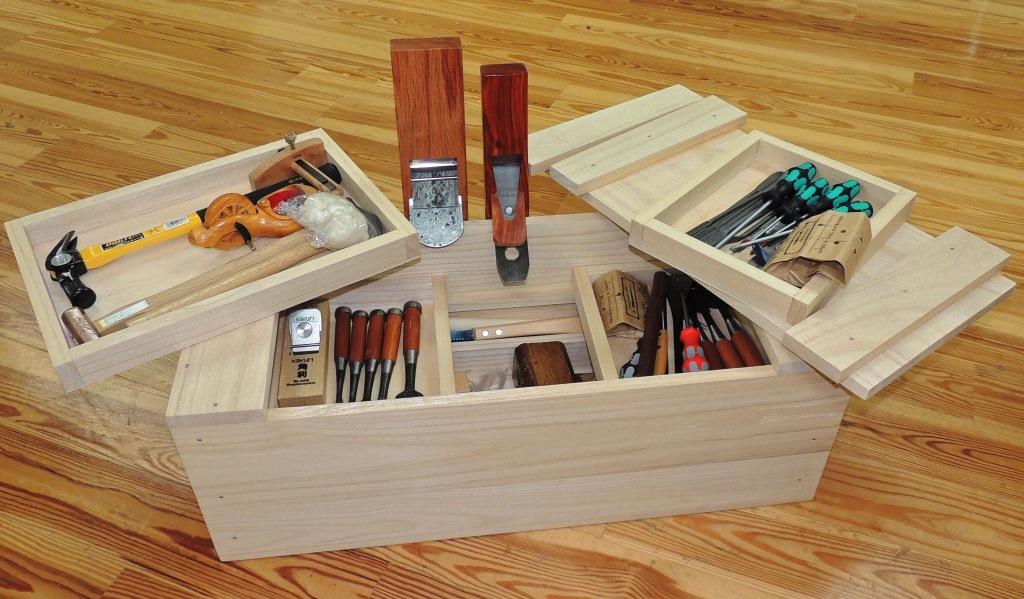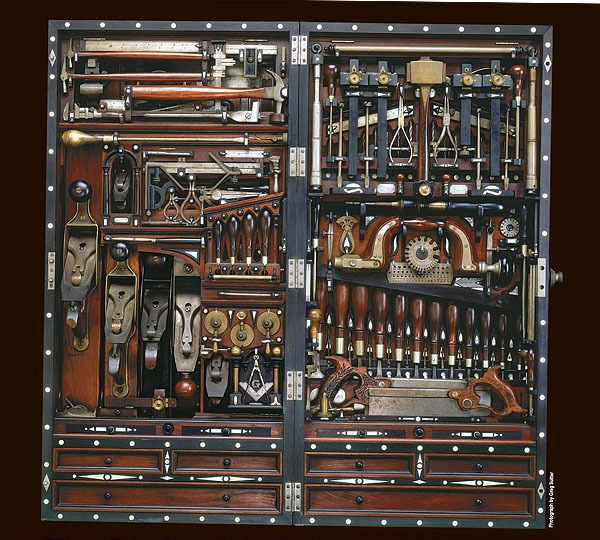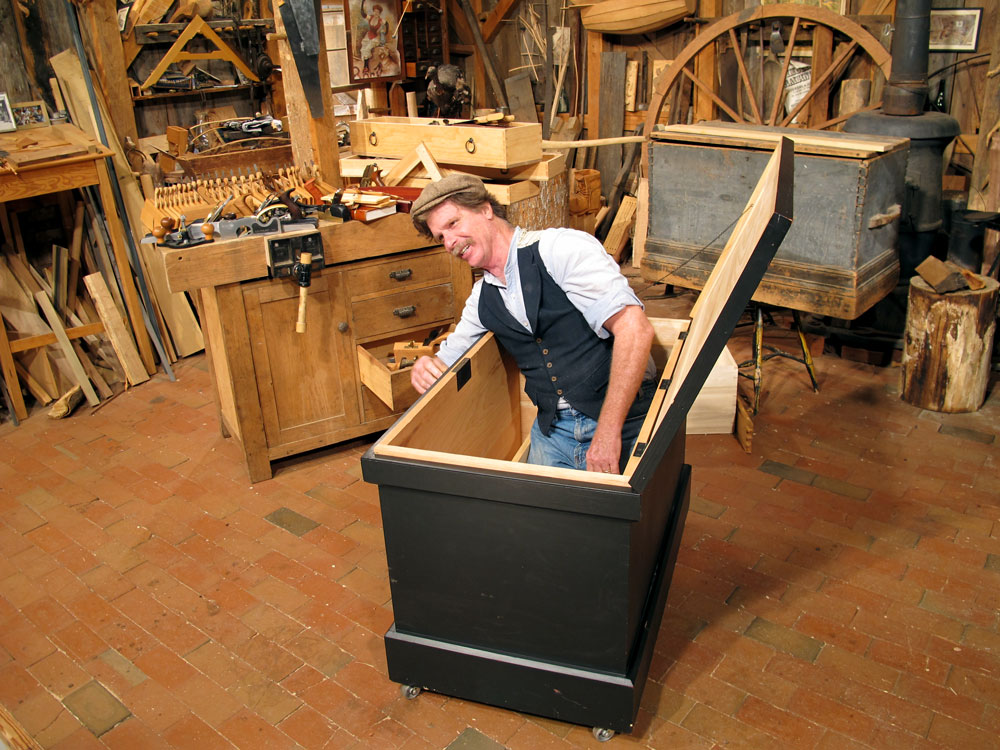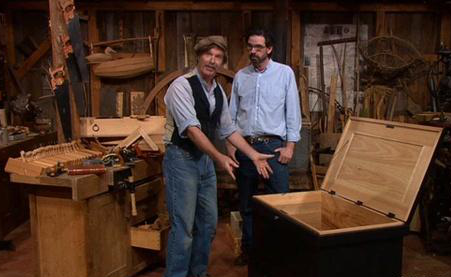Hand Tool SIG
Sign up for Paul's next Hand Tool SIG
Join us this Saturday morning 3/27 at 10:00 am to get an in depth look at a newly made traditional tool chest designed to safely hold hand tools for the active woodworker, while protecting them from rust and dust.
When I started woodworking a few years ago I began to acquire tools for both machine and hand work, some of which I use all the time, some are used infrequently, some will be used in the future and some never have been, and never will be used.
Those tools I need to access and use the most tend to live on pegboards, in cabinets and under my bench, but they do create a very cluttered appearance to my work area.
So… I decided to create some custom storage. Specifically storage for those hand tools most commonly used by furniture makers. I started by listing the important features I need/want in a usable storage container.
- It must be capable of holding almost all the 40-50 tools needed for most hand work.
- It must allow easy and instant access to all the tools in the storage. It should not be necessary to remove other tools in order to gain access.
- The container needs to be on wheels as my bench is also on wheels due to space considerations. I should be able to have full access wherever the bench is today.
- The container must be made mostly of wood to protect the many sharp tools it will store.
- It must be strong, durable and dust resistant.
- The interior must be flexible because my taste in woodwork changes over time and I need to different tools to be stored at different times.
- This is a definite want, not a need. If ever needed, this heavy container should be able to be picked up using a forklift.
- I wanted to use mostly hand tools to make it.
After compiling this list I did a little research and concluded that a cleverly compartmentalized chest was the answer.

Ncwwdworkerhttps://www.ncwoodworker.net/forums/index.php?threads/tool-box-plans.58555/
There are many tool chest designs out there and they vary from the ascetic simplicity of Japanese working tool chests to the magnificent complexity of Henry. O. Studley’s wall mounted chest that holds an incredible 218 tools in a space 9” x 20” x 40”.

Eventually I remembered that I had once read a book by Charles Schwartz with the intriuging title of “The Anarchist’s Tool Chest”. Among many other things, the book contains Schartz’s personal modification of a traditional tool chest design that checks all eight of my requirements.

https://blog.lostartpress.com/2012/02/18/anarchists-tool-chest-on-the-woodwrights-shop/
Schwartz actually wants you to design the interior for yourself, but I decided to follow his design in order to learn what I really need and what just seems like a neat idea when one see's it.
My big reservation was that because this design is a very deep chest (24”) it may be difficult to remove heavy planes, large saws and other tools that would inhabit the lowest level?
I decided to invest the time and effort making the chest, thinking I could always pass it on if it does not work for me. I have since discovered that the chests alone can sell for up to $4500.00 and are quite popular.
Three months later I have completed the chest, largely made with hand tools, filled it and started using it for my daily work. Thus far I have no complaints.
All my tools are readily to hand and the rim of the chest provides just the support I need to bend over and remove planes etc from the bottom. The three upper trays give easy access to marking tools, small saws, spokeshaves, block planes, shoulder planes, chisels and many other items.
We look forward to seeing you this Saturday when I will show you the design and construction details while the chest is empty, put all the tools in their place and demonstrate how easy it is to gain access to them all.

